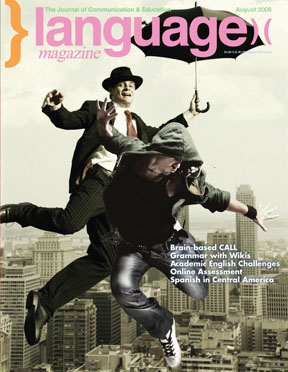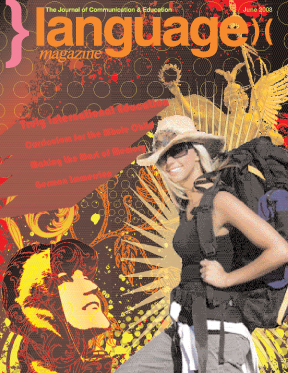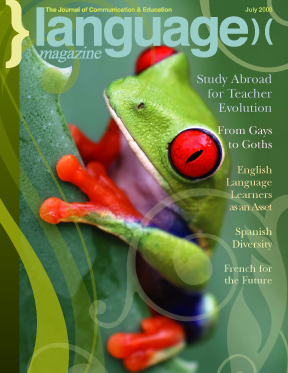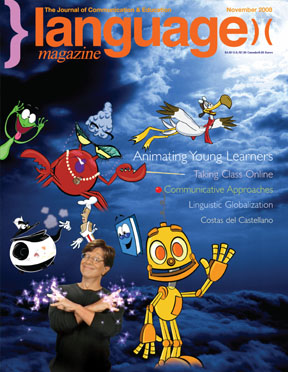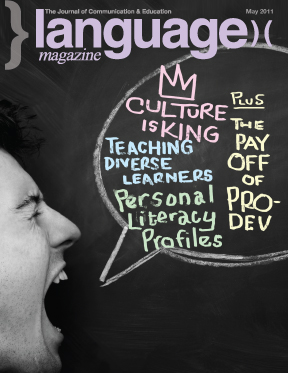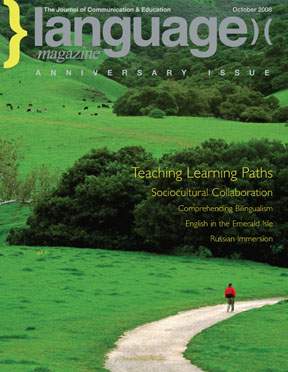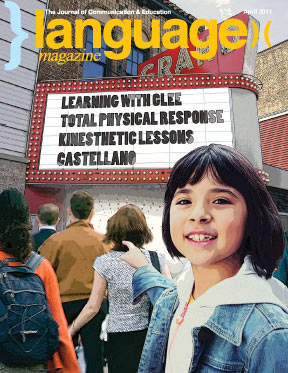Reading All Formats
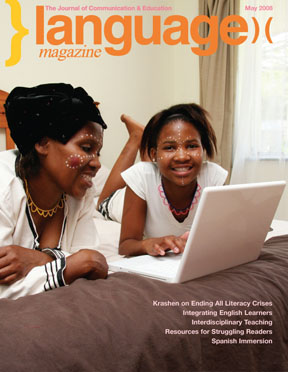
Barely a week goes by without the release of a new report highlighting the growth of the literacy crisis in the U.S. At the same time, we are constantly hearing about the achievement gap between white and minority students. And then, there is the dilemma of the digital divide. Of course, all three of these problems are inextricably linked, but their relationship may be more complex than at first glance.
We need to look at our definition of literacy and decide if it is appropriate in a 21st century multicultural society. Our definition of literacy is based on the ability to read and comprehend in English. While it would be beneficial for all of us to be literate in a common language (in addition to our mother tongue, see World Languages, page 16 for the European “personal adoptive language” proposal), and, in the U.S. it would be logical for that language to be English, the reality is that there are hundreds of thousands of people in this country who are literate in their own language but not English. It is not only arrogant, unfair and incorrect to classify someone as illiterate just because they do not understand the language of the majority; it is damaging as it diminishes the importance of their acquired skills and discounts their use as a bridge to English literacy. Research has shown and practice has proven that literacy in one language accelerates literacy in another, especially if both languages have similar roots as in English and Spanish. However, educators are often asked to ignore this advantage and teach students as though they have no literacy skills. This policy of refusing to build upon literacy in other languages must actually slow down the acquisition of English literacy.
The advent of the digital age should also cause us to reevaluate our perception of literacy as the printed page is no longer the sole source of information and means of written communication. Texting, instant messaging and email are now the preferred communication form of affluent youth. In middle-class suburbs, you can hardly walk two minutes down the street without seeing a kid texting— all fingers and thumbs a blur — while in less affluent areas, children are lucky if they have a public library within walking distance.
While it would be wonderful for our children to be reading the classics, or even Nancy Drew, we have to accept that reading habits have changed and will continue to change further. This in itself is not a problem as long as all children have access to these new literacy tools, but the reality of the digital divide is that those children who need them the most – minorities, English language learners — are least likely to have them and least likely to have access to their predecessors — books, magazines and comics.
We need to rethink our literacy strategies to embrace existing skills, work with technology companies to give all children access to modern tools, and adapt to the reality of our multicultural, multilingual, digital society so that the joy and value of reading and writing do not become a privilege but remain a right.
IN THIS ISSUE:
Ending All Literary Crises
Stephen Krashen presents some very good news about children’s literature, some very bad news about access to books, and a solution to end all literacy crises
Connecting to Content
Lori Langer de Ramirez and Geraldine Finazzo present an interdisciplinary model for teaching language, culture and content in the World Language classroom
Matching Styles to Learners
Rita Dunn, Yvonne Pratt-Johnson and Andrea Honigsfeld recommend learning-styles based instructional approaches to integrate English learners in instructional activities while exposing them to necessary academic language and content
Assisting Struggling Readers
Resources to help your students on the road to literacy
Spanish Fashion
Christine Tsai unveils what the chic city of Barcelona and the neighboring ultra-hip Balearic Islands have to offer the stylish Spanish learner
Mexico’s Coast of Culture
Christine Tsai travels to the southern coast of Mexico in search of a Spanish learning experience full of culture
Last Writes
Richard Lederer on Language Inventors


